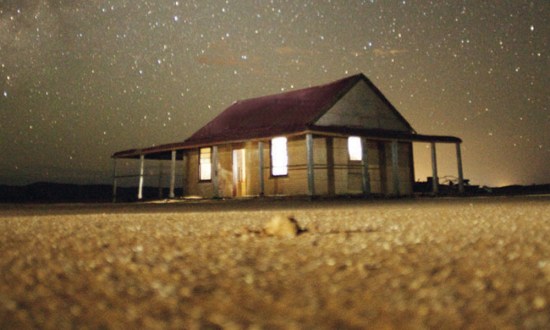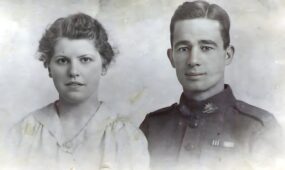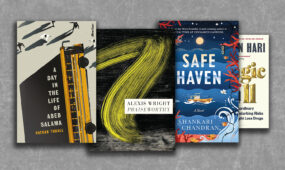Orr pierces the heart of drought country
Books & Poetry

Adelaide author Stephen Orr’s new novel takes readers to the heart of drought country on a sprawling, isolated cattle station whose cracked earth and crumbling buildings hide family secrets dating back to World War I.
This was country that hadn’t asked for farmers but had got them anyway. On the southern edge, the railway line, and to the north, nothing. They had neighbours to the east and west, but they might as well have been living in New Zealand.
They are fourth-generation South Australian cattle farmer Trevor Wilkie and his family: wife Carelyn, their two young sons Aiden and Harry, his Aunt Fay and her developmentally delayed adult son Chris, and Trevor’s recalcitrant 74-year-old father Murray, who still owns the deeds to the parched property.
In Murray’s eyes, there is no choice but to keep fighting to retain Bundeena, the land his father and grandfather farmed, despite the fact that stock are starving to death through lack of feed and there is no hope of paying the mounting debt.
Trevor, however, is riven by divided loyalties, quietly doubtful that there are any prospects on the farm for 11-year-old Harry and 17-year-old Aiden.
Central to the narrative of The Hands are the intractable bonds and tensions inherent in the family unit. From the opening chapter, the reader feels invested in the lives of this cast of resilient yet inscrutable characters, each of whom is simply trying to be as best they can.
Station life has a predictable rhythm – chores, gardening, school work and trail bike rides, interspersed with swirling dust storms – yet an underlying feeling of entrapment intensified by the weight of history puts a strain on relationships.
Then tragedy strikes, with an accident on a dark outback road that will have far-reaching consequences for everyone.

Get InReview in your inbox – free each Saturday. Local arts and culture – covered.
Thanks for signing up to the InReview newsletter.
The Hands is a raw, honest and absorbing portrait of pastoral life from Orr, whose previous books include Dissonance, One Boy Missing and Time’s Long Ruin (based loosely on the disappearance of the Beaumont children).
In this fictional tale, he eloquently captures the practical trials and emotional angst experienced by farmers torn between a generations-long connection to country and the reality of a fragile future dependent on nature’s whims. The pastoral portrait he paints is so vivid you can almost taste the suffocating dust.
Two great strengths of Orr’s writing are the restraint shown in the dialogue, and the clever manner in which he manages to convey a sucker punch without ever resorting to overt sentimentality. What is left unsaid is often more powerful than words, as demonstrated in the tender moments where Trevor finds refuge in his shed, quietly carving realistic wooden hands modelled on those of his family.
The Hands is no airbrushed, nostalgic portrait of rural life. Sometimes brutal, sometimes beautiful, it feels intensely real. A true Australian story – and one well worth reading.
Support local arts journalism
Your support will help us continue the important work of InReview in publishing free professional journalism that celebrates, interrogates and amplifies arts and culture in South Australia.
Donate Here






Comments
Show comments Hide comments